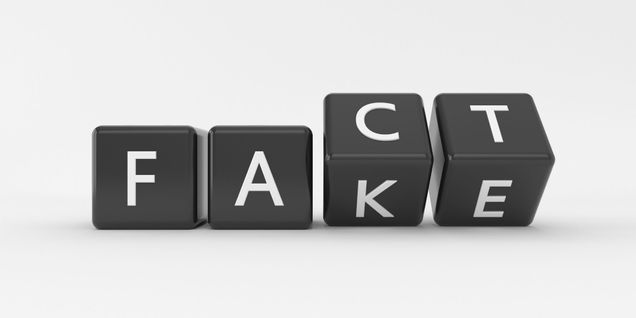BU Professors Earn NSF Grant for Data Science Project Fighting Online Misinformation
Can data science offer an antidote to fake news? That’s the hope.
New research by a team including Boston University professors and Computing and Data Sciences (CDS) graduate students proposes using technology-aided societal structures to decrease fake news’ adverse impacts news while simultaneously preserving free speech. The team recently received a $550,000 National Science Foundation grant.
They see a chance to curb misinformation without censorship.
“Societies function badly without free speech,” says the principal investigator (PI) on the project, BU’s Marshall Van Alstyne, the Allen and Kelli Questrom professor in information systems. “They also function badly when they cannot agree on basic facts.”
The team notes misinformation spread on social media influences societal issues, like vaccine hesitancy, as well as matters of life and death, including lynching and sex trafficking. One of the central questions the team will answer: Can we actively discourage willingness to spread misinformation?
“We want social media platforms to have sufficient financial incentives to provide innovative new services. But we also want them to have sufficient incentives to serve the public good,” says Associate Professor – Faculty of CDS Mayank Varia, a co-PI.
 The team is conducting live experiments, with programmers and data scientists designing interventions for cases like false advertising. Later, they will release the code as open source, then try to publish the results and influence policymakers. In April, Van Alstyne and two coauthors published a journal article based on the research in the Communications of the ACM, titled “Improving Section 230, Preserving Democracy, and Protecting Free Speech.”
The team is conducting live experiments, with programmers and data scientists designing interventions for cases like false advertising. Later, they will release the code as open source, then try to publish the results and influence policymakers. In April, Van Alstyne and two coauthors published a journal article based on the research in the Communications of the ACM, titled “Improving Section 230, Preserving Democracy, and Protecting Free Speech.”
Other BU team members include Professor of Computer Science Ran Canetti, director of the Center for Reliable Information System and Cyber Security (co-PI), Professor of Marketing Nina Mazar (co-PI), postdoc researcher Swapneel Mehta, CDS PhD student Tejovan Parker, CDS master's student Zoey Yang, and Questrom PhD student Aaron Nichols.
The team still has room for interested BU students. Van Alstyne also notes the team will be accepting applicants into the PhD program who are interested in this research.
The project connects to the CDS Hub for Civic Tech Impact and includes research into transparency, auditability, and privacy guarantees that can be enforced by technology. It will measure (i) the extent to which we can distinguish actors who share higher vs. lower quality information, (ii) how much false content we can reduce without affecting free speech, (iii) whether we can build transparent, auditable, and private markets of false claims, and (iv) how well these changes might improve discourse involving elections, public health, and advertising.
-Toni Fitzgerald, CDS Contributor